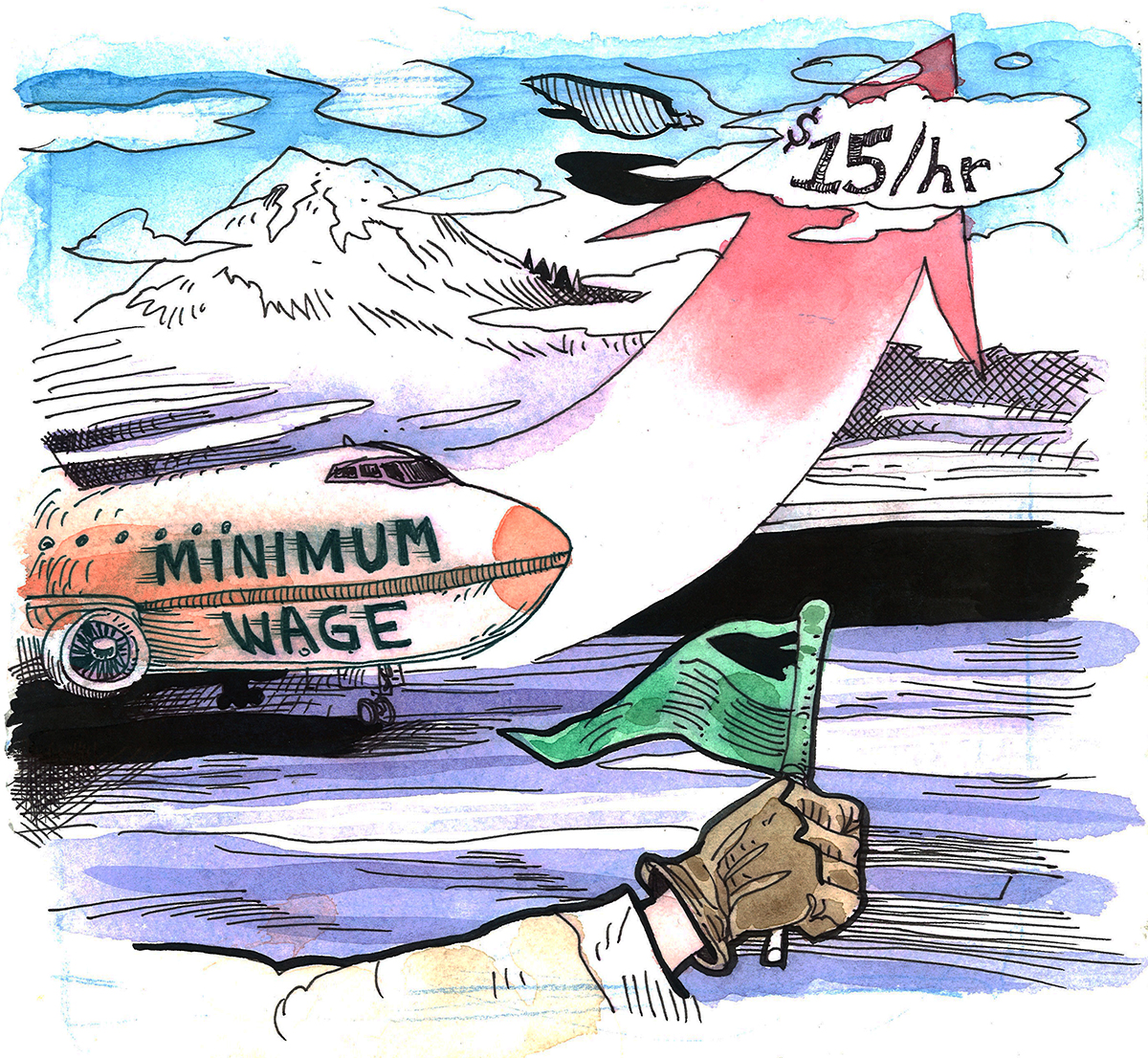Anthony’s Restaurant in the central terminal of Sea-Tac Airport was the highest-grossing airport restaurant in the country last year. The upscale seafood joint raked in a mind-boggling $12.8 million.
That’s some fancy fish.
On the whole, Sea-Tac Airport has been kicking some serious ass as of late, setting a record for traveler volume for two years in a row. In 2012, some 33.2 million passengers passed through, throwing their money at all sorts of things. According to a report from Seattle Port Commissioner John Creighton, in 2012 the airport sold:
• 1.7 million bottles of water
• 230,000 bags of M&Ms
• 90,000 neck pillows
• 20,000 copies of 50 Shades of Gray
• 10,000 Sleepless in Seattle nightshirt/PJs
All this resulted in $180 million in airport revenue. You can think of Sea-Tac Airport as a very unique kind of mall: one full of shoppers who are literally held captive in a consumer playland.
This November, when voters in the City of SeaTac pick up their ballots and decide whether or not to up the minimum wage to $15 an hour for hospitality and transportation-industry workers, there are a couple ways to look at it: On one hand, the new minimum wage would represent a whopping 63 percent jump from Washington’s $9.19 an hour, already the country’s highest. On the other hand, 11.5 percent of SeaTac residents live below the poverty line—one of the highest rates in King County. (Despite all the 50 Shades of Gray sales, mind you.)
While everyone in SeaTac will vote on Proposition 1, it doesn’t apply citywide. Rather, the resolution targets a very specific group of workers at and around the airport, about 6,000 in total. The “hospitality employers” outlined in the resolution are limited to hotels with 100 or more guest rooms and 30 or more workers, as well as food service and retail operations located in a “hotel, public facility, corporate cafeteria, conference facility, or meeting facility.” The “transportation employers” cover your standard airport fare: baggage handlers, wheelchair escort services, security, etc.
Not only would these employees enjoy a $15 minimum wage under Prop.1, but 6.5 days of paid sick leave as well.
The proposition specifically exempts small businesses that would be hurt by the pay jump—places like two-or-three-person shoeshine operations, for instance. In sum, it’s a surgical strike aimed at the highest-grossing low-paying employers.
The opposition has argued that profit margins at the airport are thin, and raising the minimum wage would force businesses to close and leave their employees earning $0 an hour.
The owner of a Quiznos franchise inside Sea-Tac, Brett Hebernicht, has publicly stated that the proposition would force him to close his business thanks to the Port of Seattle’s “street pricing” clause, which prevents him from raising prices higher than those of Quiznos outlets outside the airport—despite the higher rent many business owners pay for space inside.
This claim should be taken with a slice of ham, though. A comprehensive study from UC Berkeley in 2003 on raising airport wages found that retail prices in fact did not experience a significant jump because of higher wages. In Australia, where on July 1 the national living wage was raised to a hefty A$16.37, retail prices stayed relatively close to previous prices as well.
Regardless of how Prop. 1 affects the fate of travelers’ access to toasted subs, the most significant role Prop. 1 will play is as a bellwether. If SeaTac can weather the wage hike and inject more money into the economy thanks to the resulting spending increase, as proponents hope, it could encourage similar efforts in Seattle and across the country.
“The fact that SeaTac is voting on this issue in November while we’re waging a campaign on very similar issues over here in Seattle does seem indicative of the direction our region is going in terms of finding new ways to get the economy moving,” says Sage Wilson, spokesperson for Working Washington, a group moving to set higher living wages for low-wage workers. “It’s a similar conceptual thing to what we’re talking about in Seattle.”
Some teachers in SeaTac have been quick to point out that hotel maids might end up making as much as they do in their college-degree-requiring jobs, which often offer similar $15-an-hour entry positions.
Yes for Sea-Tac spokesperson Heather Weiner sees that not as an issue, but as an opportunity. “For me, if I’m making $17, it doesn’t make sense to say the people below me shouldn’t be making $15. I’d want the people below me to make more because it would help make all boats float higher.”
ksears@seattleweekly.com








